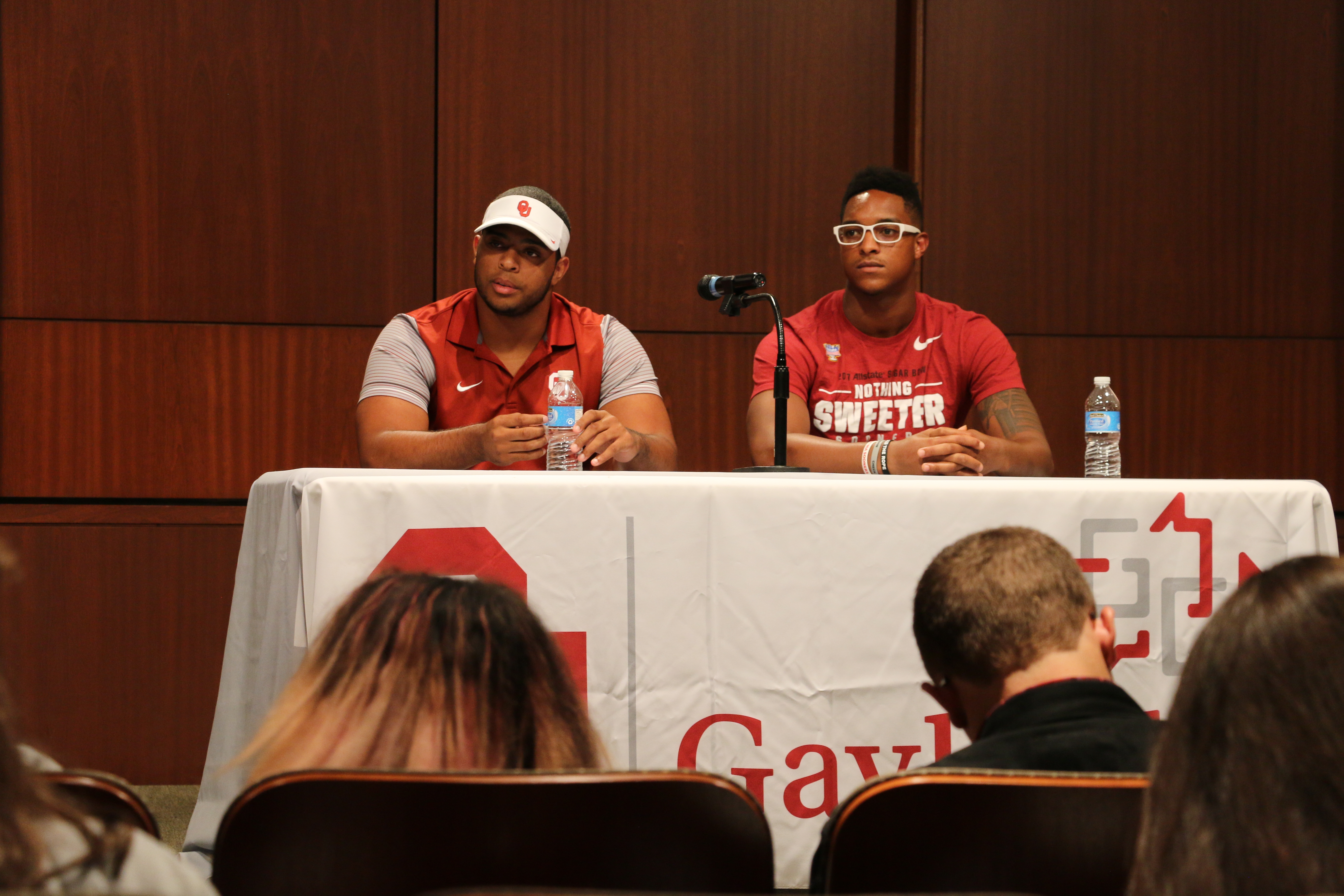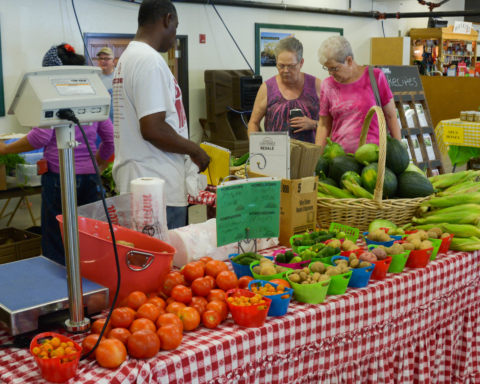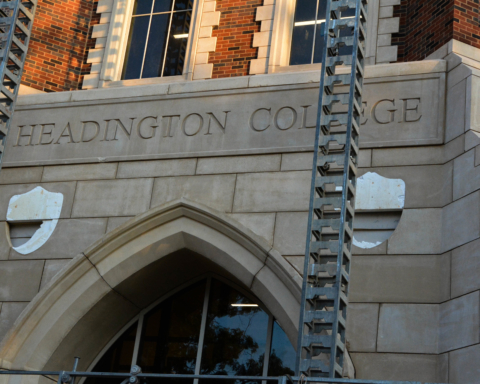Two-plus years after a racist SAE fraternity chant rocked OU, two Sooner football players are doing their part to make sure the lessons their team learned aren’t forgotten as they enter their senior years.
“The fight is never over with,” said safety Steven Parker, who had just finished his freshman year when the incident occurred in March 2015.
“I hate it when these things happen — we all do — but it happens,” the Tulsa native said about encounters with racism during a wide-ranging press conference Sunday night at Gaylord College as part of the Oklahoma Institute for Diversity in Journalism.
Parker and Dimitri Flowers, a fullback from San Antonio, said being seniors means they are now leaders of the team, and they must continue to reinforce the importance of standing together as teammates in the face of hardship.
They said that before the SAE incident, the public wouldn’t usually see teammates hanging out together outside their position groups. Since SAE, they said, players are closer regardless of position group.
“Everyone is together all the time,” Flowers said.
Both men said they had been involved in activism before SAE but that those events solidified their views. Parker said he would do anything he could to help fellow African-Americans, teammates or not.
“It could change the world” Parker said.
That mentality bore itself out in 2015, when OU athletes pushed the student body to respond positively in the face of crisis to create a more racially sensitive community.
In the days after the video became public, athletes participated in marches and, they said, avoided turning their backs on SAE members, some of whom Parker said were among his friends.
Together, speeches made by administrators such as OU President David Boren and student demonstrations involving athletes, they said, showed a spirit of the Sooner family to stand up for what you believe in without being destructive.
They said that is a lesson they’ll carry the rest of their lives as they navigate a world full of risks, including the rise of police shootings in the African-American community.
The September 2016 fatal shooting of Tulsa resident Terence Crutcher struck particularly close to home for Parker, who went to high school fewer than 20 miles from where Crutcher was killed.
“I feel like every day I have to watch out for myself,” Parker said. “I tell my family to be safe, and I just pray that things get better.”
Inspired by his strong-willed grandfather, Parker said he is passionate about helping students find their voices in activism without it becoming uncomfortable. It’s something he said he plans to continue after graduation.
“As you get older,” Parker said, “you get to preach to the young what was taught to you.”
Flowers agreed, noting that pushing through uncomfortable interactions and closing the distance some people put between themselves and others is the key to achieving tolerance.
“Racism is taught, they sang the song but that was a learned behavior”, Flowers said. “We can forgive them and that is all you can really do.”
He explained that if recruits were to ask whether OU has a racial problem, he would say racism can occur anywhere and that the SAE incident is not representative of what OU’s campus is about.
On a national scale, instances such as SAE and the Crutcher shooting have fueled movements like Black Lives Matter.
Last football season, NFL star Colin Kaepernick took a stand against issues such as police shootings and protested by kneeling during the national anthem at games. This created an uproar from both opponents and supporters of the Black Lives Matter movement.
Both Parker and Flowers — players considered to be NFL prospects next spring — paused when asked about their interpretation of Kaepernick’s stance, which has left him without a team since he opted to leave the San Francisco 49ers this spring and become a free agent.
Parker said he thought Kaepernick’s actions could be considered great and heroic but made clear he would not take such a drastic action.
Flowers said he questioned whether taking such actions would make a significant impact on the cause of racial progress.






